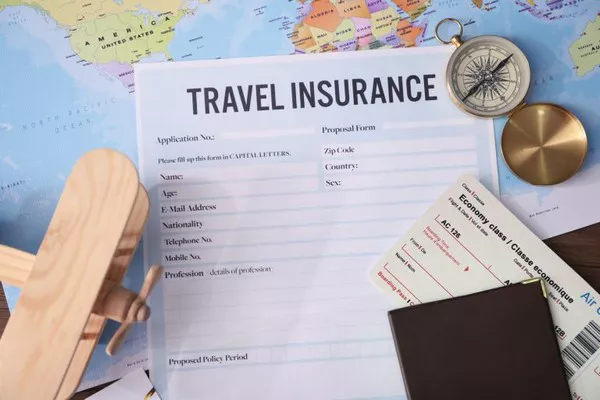The excitement of planning a trip, even a domestic one, can sometimes overshadow the importance of considering unexpected disruptions. One question that often arises is whether you need travel insurance for domestic flights. In this insightful guide, we explore the factors that can help you make an informed decision, ensuring that your journey, whether near or far, is backed by the right level of protection and peace of mind.
1. Assessing the Scope of Your Existing Coverage
Health Insurance Coverage: Before diving into travel insurance, evaluate your existing health insurance coverage. Check whether your health insurance extends to the destination of your domestic trip. Understanding your healthcare coverage ensures you’re adequately protected in case of medical emergencies.
Credit Card Benefits: Some credit cards offer travel-related benefits, including trip cancellation or interruption coverage. Review the terms and conditions of your credit card benefits to determine if they provide sufficient protection for your domestic travel needs.
2. Considering Potential Risks and Disruptions
Trip Cancellation or Interruption: While domestic travel may seem less prone to cancellations, unexpected events like family emergencies, illness, or unforeseen obligations can still arise. Travel insurance can provide reimbursement for non-refundable expenses if you need to cancel or cut short your trip due to covered reasons.
Travel Delays and Missed Connections: Even with domestic flights, delays and missed connections can occur. Travel insurance can cover additional expenses such as accommodation, meals, and transportation if you find yourself unexpectedly delayed during your journey.
3. Evaluating Your Personal Preferences and Risk Tolerance
Value of Non-Refundable Expenses: Consider the financial impact of non-refundable expenses related to your domestic trip. If you’ve invested in non-refundable flights, accommodations, or activities, travel insurance can provide a safety net by reimbursing these expenses in case of covered events.
Personal Risk Tolerance: Assess your own risk tolerance and comfort level with uncertainties. If the thought of unexpected disruptions causing financial loss or inconvenience concerns you, travel insurance can offer peace of mind by mitigating these potential risks.
4. Special Considerations for Adventure Travel or Activities
Adventure Travel and High-Risk Activities: If your domestic trip involves adventure travel or high-risk activities, travel insurance becomes particularly relevant. Standard health insurance may not cover certain activities, and travel insurance can offer specific coverage for potential injuries or emergencies related to these activities.
Coverage for Rental Cars: If your domestic travel involves renting a car, consider whether your travel insurance provides coverage for rental car-related incidents, such as accidents or theft. This additional coverage can be valuable for a worry-free road trip.
5. Understanding the Types of Travel Insurance Policies
Single Trip vs. Annual Policies: If you frequently embark on domestic trips, an annual travel insurance policy might be more cost-effective than purchasing a single-trip policy each time. Assess your travel frequency to determine the most suitable type of policy for your needs.
Comprehensive vs. Basic Coverage: Travel insurance policies vary in coverage types. Comprehensive policies offer a wider range of protections, including trip cancellation, travel delays, and emergency medical coverage. Basic policies may provide more limited coverage, so choose based on your specific requirements.
6. Additional Benefits Beyond Coverage
Emergency Assistance Services: Travel insurance often includes emergency assistance services, providing access to helplines and support in case of medical emergencies, travel-related inquiries, or unexpected situations. Evaluate the additional benefits offered by the insurance provider.
Concierge Services: Some travel insurance policies offer concierge services, assisting with travel arrangements, reservations, and information. If these services align with your preferences, they can be an added perk of having travel insurance.
7. Making an Informed Decision
Comparison Shopping: Don’t settle for the first travel insurance option you come across. Compare policies from different providers, considering coverage limits, exclusions, and customer reviews. This ensures that you select a policy that aligns with your specific needs.
Reading the Fine Print: Before purchasing travel insurance, read the policy details carefully. Understand the terms, conditions, and exclusions to avoid any surprises when you need to file a claim. Being well-informed ensures a smoother claims process if the need arises.
In conclusion, the decision to get travel insurance for domestic flights depends on various factors, including your existing coverage, risk tolerance, and the nature of your trip. While domestic travel may involve fewer complexities than international journeys, unexpected disruptions can still occur. Travel insurance serves as a valuable tool for mitigating these risks and ensuring that your domestic adventures are not only memorable but also backed by a safety net of protection and peace of mind.


